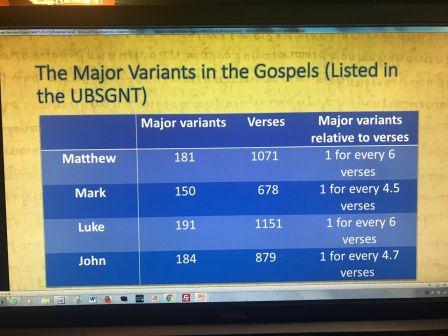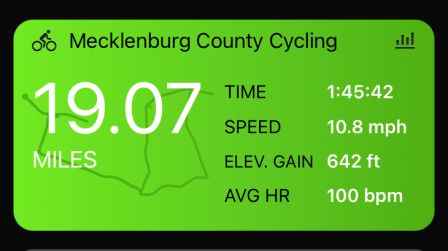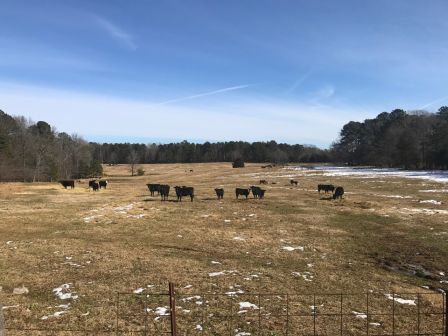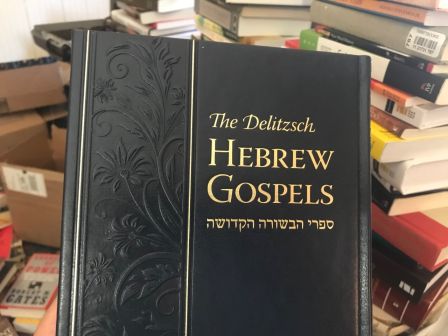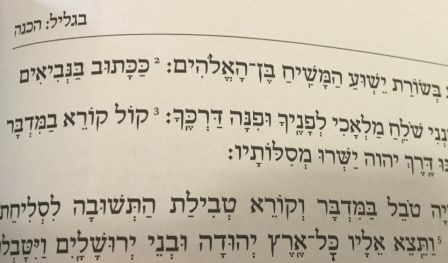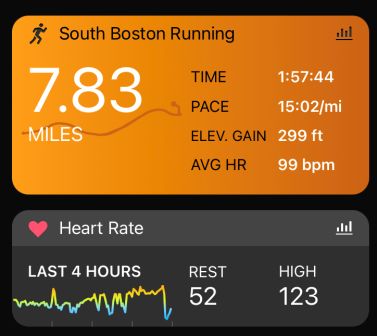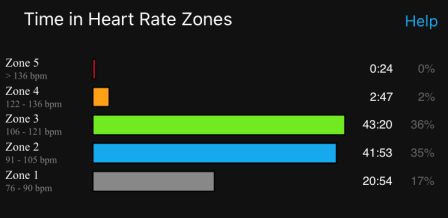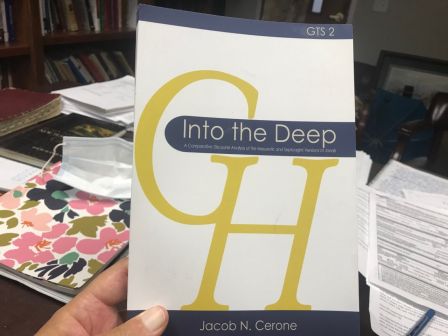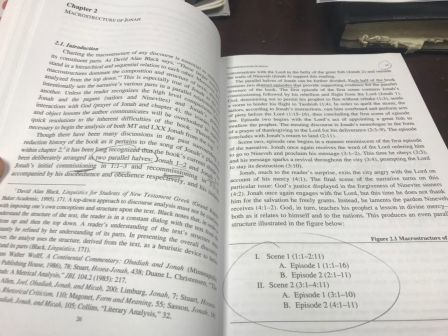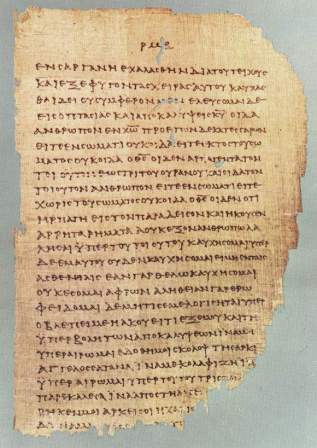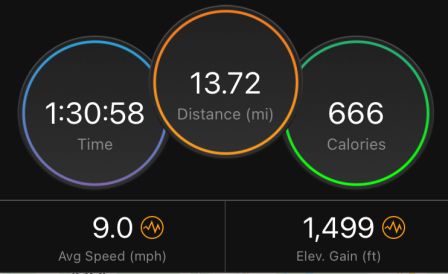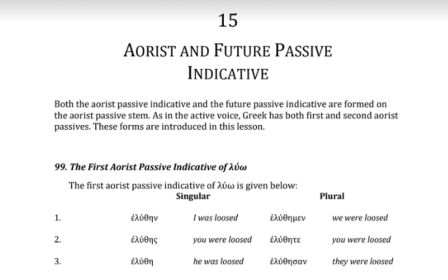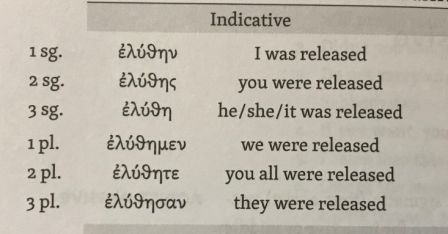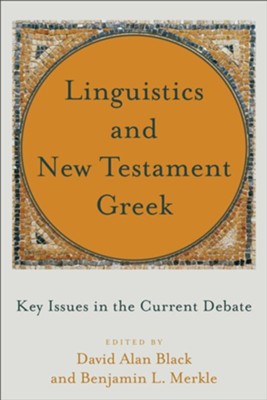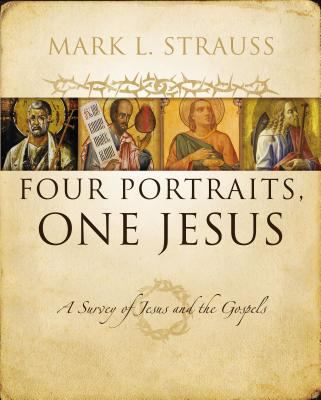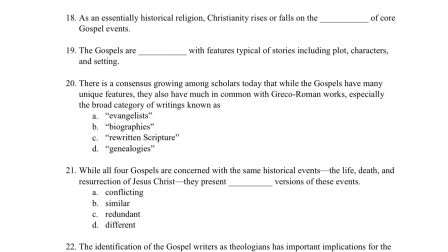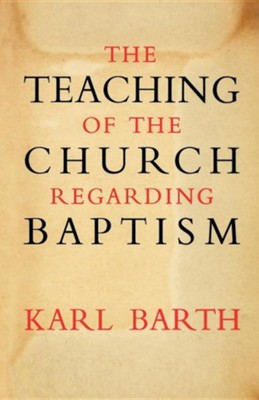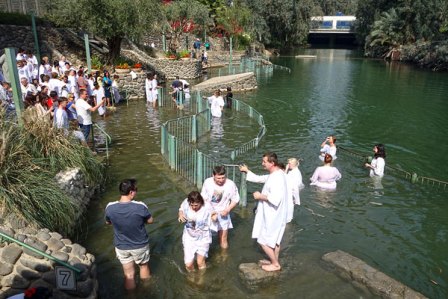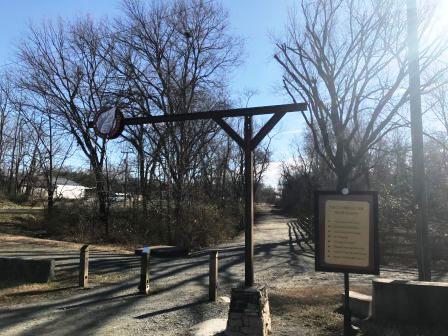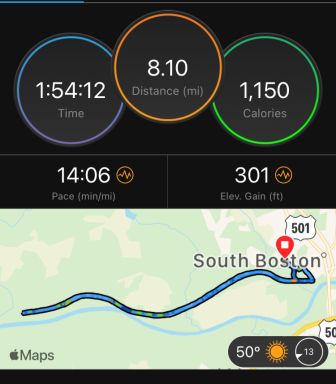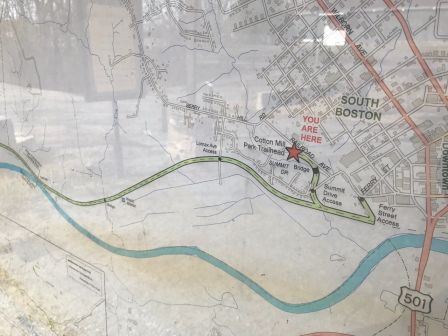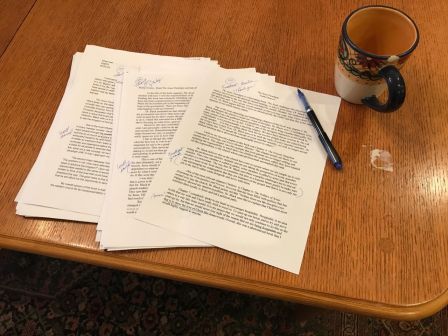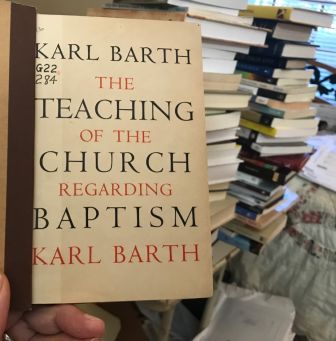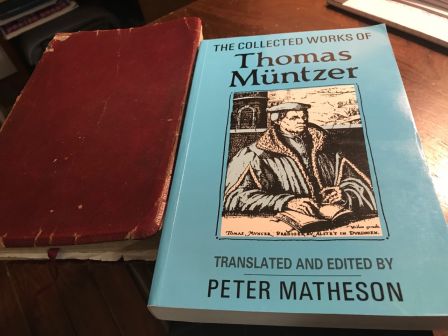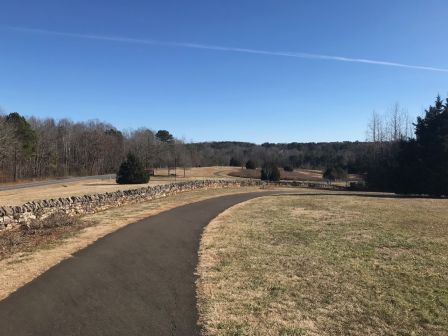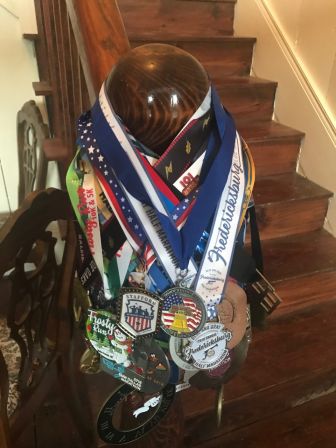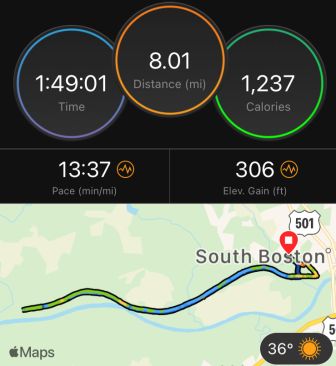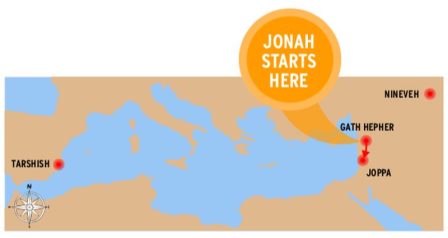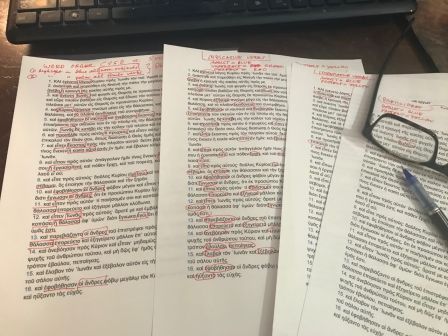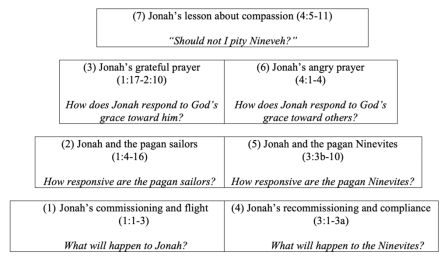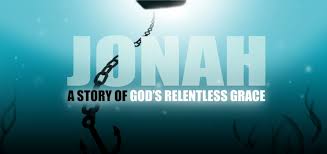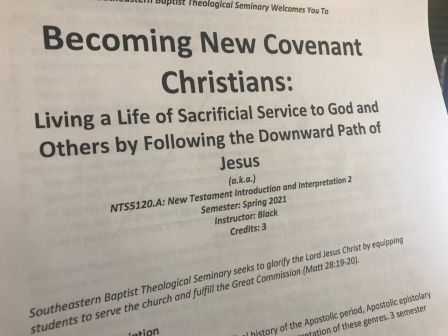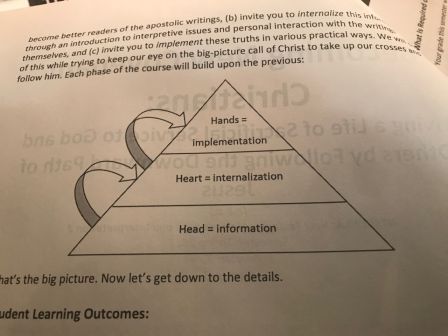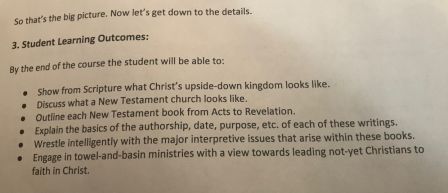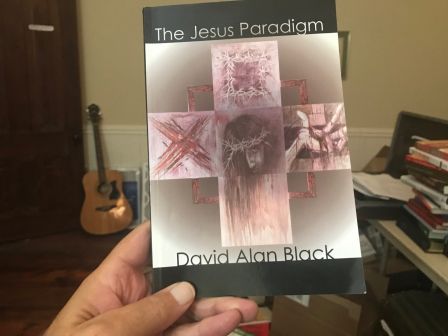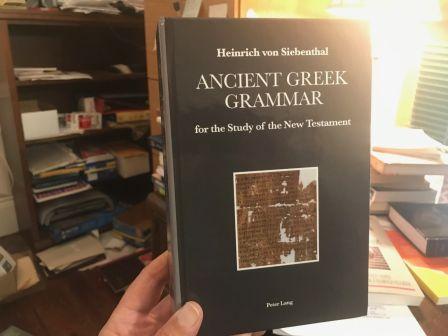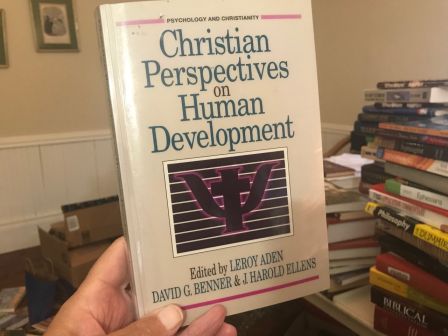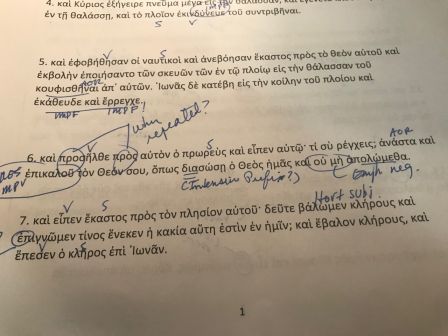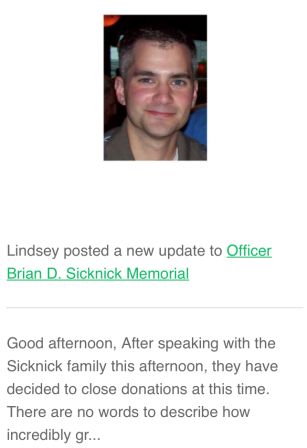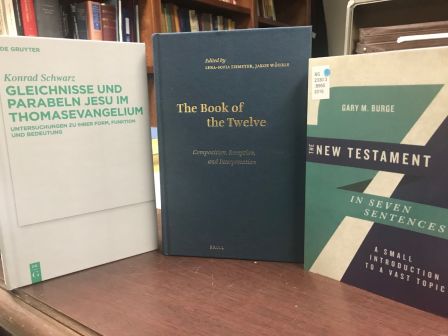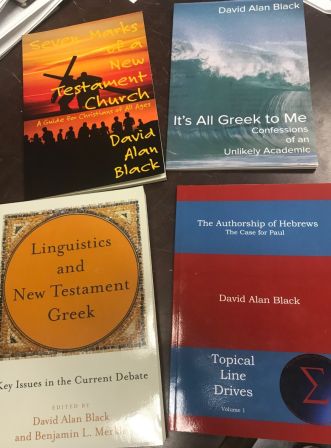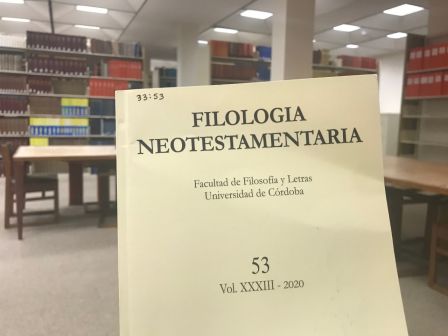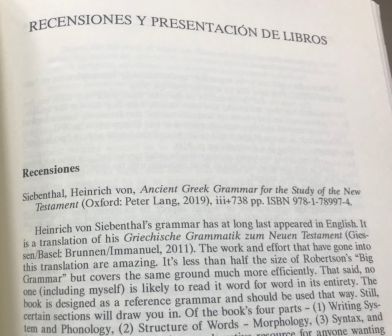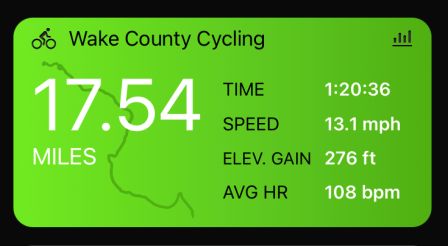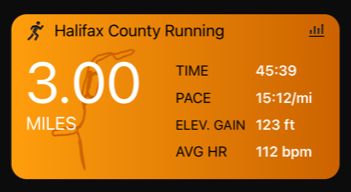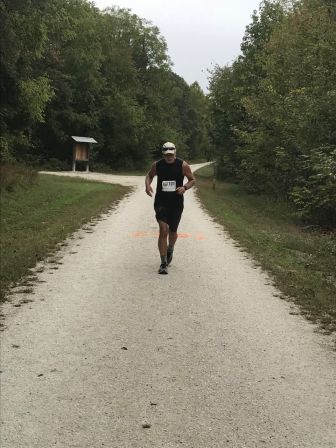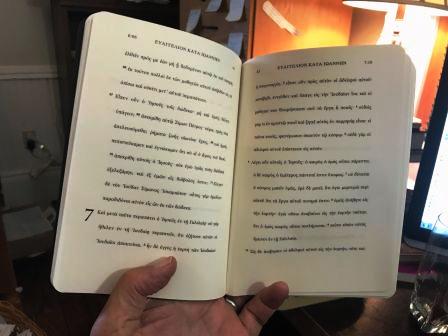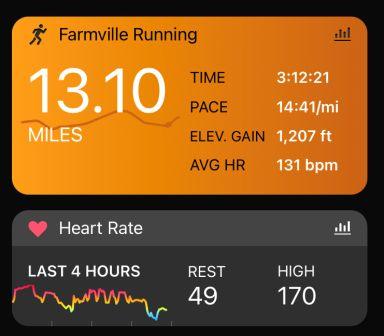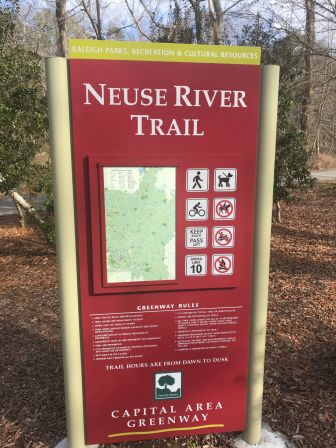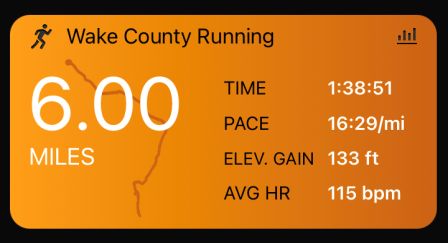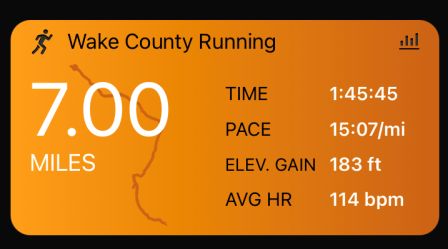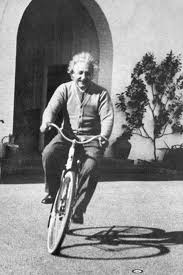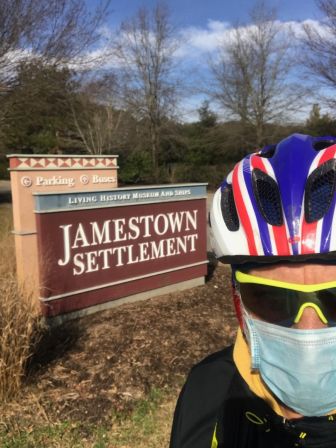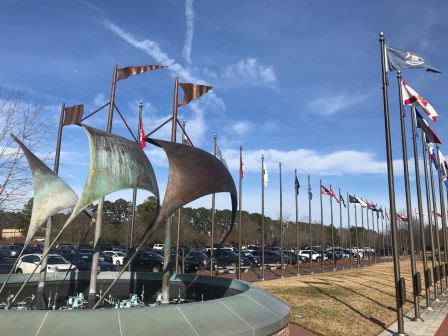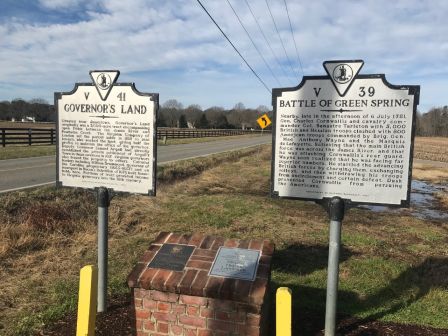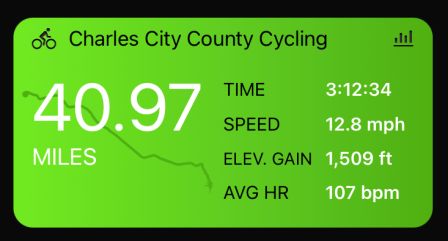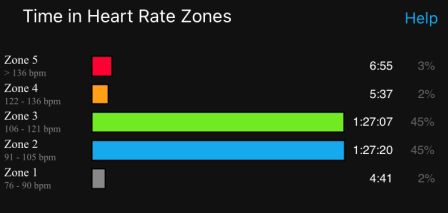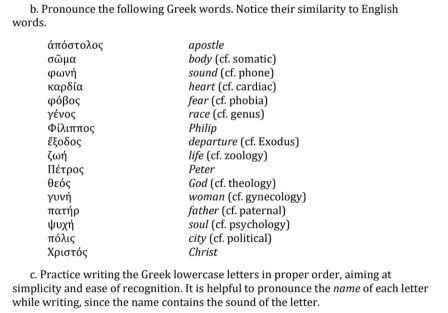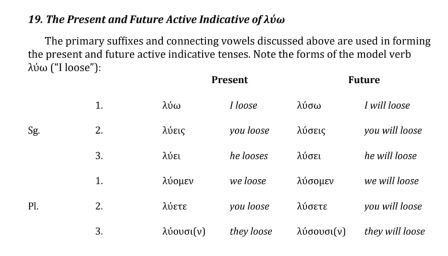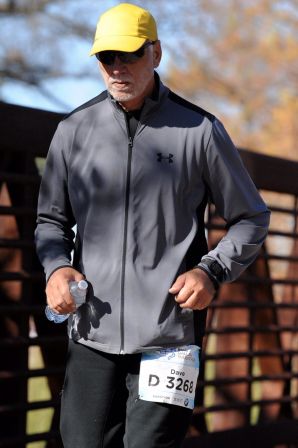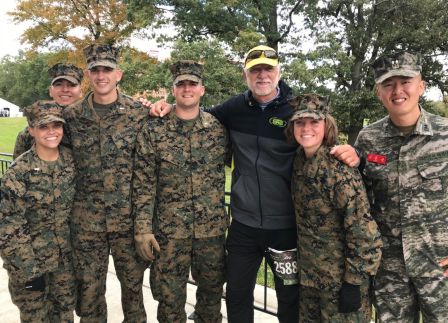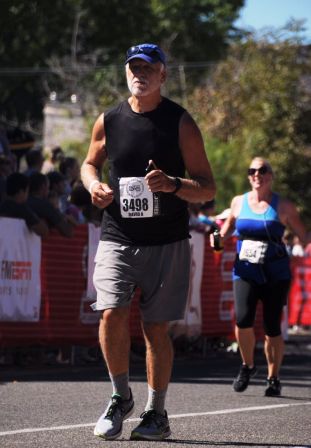October-June 2017 Blog Archives
|
|
|
||||||||
|
January 2021 Blog Archives Sunday, January 31 6:58 PM This week in NT 2 (Acts through Revelation), I will walk the class through the life and ministry of the apostle Paul. My own chronology differs a bit from the one given below, but I nevertheless found this video by Swiss Bible teacher Roger Liebi to be extremely clear and helpful.
One quote jumped out to me. The speaker has just mentioned that believers were first called "Christians" in Antioch. Then he says this:
Yes, we Gentiles who trust in Christ are, in truth, "messianic" believers as much as today's messianic Jews are. As Seth Postell, Eitan Bar, and Erez Soref have written in their book Reading Moses, Seeing Jesus:
The whole Bible points to a new covenant that is written on our hearts. I am grateful to Prof. Liebi for a reminder of that fact. 2:32 PM I don't like to think too long about Jonah because my mind always swells with disappointment not so much about him but about myself. I realize all at once how I spent so many of my years doing my own thing (all good "Christian" things, of course) without sharing God's heart for the lost. In all God's dealings with humans, from Genesis to Revelation, nothing matters more than the cross. Nowhere else did God so vividly and sacrificially display his love. This morning I did a mini-study of that great passage in 2 Tim. 3:15-17 about the Old Testament -- what Paul calls the "Holy Scriptures." This includes the book of Jonah, of course. Paul is adamant that Jonah is just as God-breathed as any other part of the Old Testament. But he adds that the Old Testament is not only inspired but is useful, profitable, practical, and very powerful. It is useful for:
Today I began something I plan to do whenever I study a book of the Bible. Using those four categories, I will make a list of the ways in which that book of the Bible has (or can) impact my life. Here's a partial listing for Jonah: Teaching the truth.
Rebuking error.
Correcting faults.
Giving instruction for right living.
There are days when I don't feel very Christian, days when I feel like a Jonah. But this fact remains: Because of the cross, I can experience God's mercy and love each and every day of my life and even into eternity. I can begin to understand that his love for me is nothing like Jonah's (or my) half-hearted love for him. It is a deep-rooted, unconditional love. That's not always how I love. And that's why Christ had to die for me, as well.
1:22 PM Here's something I've never before mentioned on this blog. When you write books about the Bible, you run the very grave risk of deflecting people's attention away from the very Bible you hope they will read. I myself need to be reminded constantly of the vast superiority of the Bible to anything a human has written about the Bible. John Wesley once wrote, "Oh, give me that book! At any price, give me the book of God! I have it: here is knowledge enough for me. Let me be a homo unius libri." Exactly. Lord, make me a "man of one book." A Bible in the hand is worth 50 on the shelf. 10:28 AM In our Mark class this week we will be focusing on textual criticism, verbal aspect, and the Synoptic Problem. Why do we have four Gospels? Where does Mark fit in? In Matthew, Jesus is king. In Mark, Jesus is servant. In Luke, Jesus is fully man. And in John, Jesus is the eternal God. Hence king/servant, man/God. What's more, in no Gospel do we have much "commentary" by the author. The "commentary" is to be found in the way the Gospel writer selected and arranged his stories. Mark, for example, has only 31 verses that find no parallel with Matthew and Luke. So we think, "Why, then, should I even bother with reading Mark?" However, Mark's story of the life of Christ has its own particular arrangement that reveals a great deal about his purpose in writing. For Mark, Jesus is above all the servant of the Lord. Hence chapter 1 moves right into the ministry/service of Jesus without anything said about his genealogy or childhood. Moreover, in Matthew's Gospel, Jesus speaks in about 60 percent of the verses. In Luke, 50 percent. In John, 50 percent also. In Mark, it's more like 42 percent. The accent lies on the deeds, not words, of Jesus. He's the servant who serves. Now, where in the Old Testament is the coming Messiah portrayed as a servant? The answer is in the book of Isaiah. In fact, in the second half of Isaiah, the concept of the Suffering Servant of the Lord finds a unique emphasis in all of the Old Testament. 5 passages in Isaiah have a direct reference to the theme of Mark's Gospel: chapters 42, 49, 50, 53, and 61. Note the following: 1) It's no coincidence that Mark's Gospel in 1:1 begins with a reference to the euangelion, the Good News. See Isa. 61:1: "The Spirit of the Lord God is upon me, because the Lord has appointed me to bring good news to the poor." Here "bring good news" is lebasser in Hebrew, from which the noun form "Gospel" derives (Hebrew: Besorah). 2) Then, in Mark 1:2-3, the author proceeds to quite directly from a passage in Isaiah 40. John the Baptizer will prepare the way of the Lord. Here it's made crystal clear who this coming preacher of the gospel is: It is Yahweh, the Lord himself. 3) In Mark 1:9, we read that the Holy Spirit descended upon Jesus as a dove -- just as Isaiah foretold that the Spirit of the Lord would come upon him. Jesus' baptism is the fulfillment of that prophecy. 4) Finally, notice how the words of the Father in Mark 1:11 reflect the opening of the 42nd chapter of Isaiah: "Here is my servant, whom I uphold, my chosen one, in whom I delight. I will put my Spirit upon him, and he will bring justice to the nations" (Isa. 42:1). These parallels between Mark and Isaiah raise an interesting question. It has to do with the text of Mark 1:2, where some manuscripts read "in the Isaiah the prophet," while others read "in the prophets." Again, we are driven back to the art and science of textual criticism. This morning I was reviewing my power point on the text of Matt. 5:22 and snapped this screen shot for you.
Interesting, isn't it, that the Gospel According to Mark has a greater number of significant textual variants than are found in any of the other Gospels. Here in chapter 1 we find important variants in:
In Tuesday's class we will discuss all of these variants and also delve into the deeper question of how you should approach textual variants when you encounter them in reading your New Testament. All these matters and more are on my mind as I prepare for this week's classes. What passages of Scripture are you reading this very day? What great goals loom before you this week? What avalanche threatens you this year? Whatever it is, and no matter what it is, you are never but a prayer away from your Servant King, the God-man Jesus Christ. As we see in Mark's Gospel, obstacles and even horrible circumstances mean little to him. He's looking for followers like James and John, Peter and Andrew, who will believe that what's impossible to them is possible to him. Jesus has got a pretty good track record in the miracles and deliverance department. He didn't come to be served but to serve and to give his life for many. Blessed are his followers when they're at the end of their rope. With less of us, there's more of him and his rule. Time to go online for my morning service :-) Saturday, January 30 3:34 PM Hey folks, it's just me again, popping in after a bike ride. Just put a pizza in the oven. I am starving. No, I didn't make it myself. Think Food Lion. There's probably more nutrition in the box than in the pizza. But hey, ya gotta do what ya gotta do sometimes. I'm too hungry to cook because I got in a great workout this afternoon. I drove to the eastern part of the county to bike between and around the towns of La Crosse and Brodnax. Here are a few pix to bore you to death. I'm too famished to write any descriptions. Thanks for stopping by.
10:32 AM It is simply impossible for me to study According to Mark without reading the book in Hebrew. I'm fortunate enough to have a copy of Delitzsch's new translation.
Here one gets a completely fresh look at the Hebrew background to the Gospels. Here are a few quick points to note:
The opening words of Markos are quite interesting in the Hebrew.
It reads, "Thus begins the Good News about Yeshua the Mashiach ben (Jesus the Messiah son of) ...." At this point I'm expecting ben Yosef ("son of Joseph"), but instead we find ben ha-Elohim. Wow. (Compare 1:19, where Ya'akov ben Zavdai and his brother Yochanan are introduced.) Much more could be said. In my Mark class, I intend to do what little I can to return the words and deeds of Yeshua back to their Jewish milieu by allowing this book to regain its Semitic voice. I do believe this has interpretive ramifications that serve to enhance our understanding of Jesus' message about the kingdom of God. Greek student, have you learned Hebrew yet? You should! Lord, I love your word. I love it in many languages -- in the original Greek but also in translation. I can't thank you enough for preserving your word to your people. May I read it, study it, and obey it. Amen. 8:45 AM According to Mark -- what a fantastic book! "Here begins the wonderful story about "Savior" the King, the Son of God." Mark is as rich in Christology as John is. First of all, Jesus (Yeshua) is the Savior of the world. His passion at the cross is, in fact, the main emphasis of Mark's Gospel, which many have called a passion narrative with an extended introduction. Jesus is also the long-awaited Messiah/Christ of Israel. The term means "anointed one," and was used especially in contexts dealing with royalty. I like to translate Christos as "King." Jesus is acknowledged as such in the placard on the cross. Finally, Jesus is the Son of God -- a title of deity. That's why in verse 3 we have a prophecy about a special messenger from God who will make the world ready for the coming of the Lord (Yahweh). I think Mark/Peter would have us ask three questions, even at this early stage in the narrative:
Mark will begin by proving that Jesus has unique power and authority as God. He calls to the stand three witnesses, first the witness of the Old Testament (1:2-3), then the witness of John the Baptizer (1:4-8), and finally the witness of God the Father (1:9-11). Subsequent episodes prove this point: Jesus not only teaches with authority, he has authority over demons, he has authority to preach, he has authority over defilement, he has authority to forgive sins, he has authority over men, he has authority over tradition, he has authority over the Sabbath, he has authority even over death. Take a few minutes to think about ways in which Christ reveals his wonderful authority in your life. Your life has undoubtedly changed since you became a follower of Yeshua, but what areas still need work, what areas still fall under your authority and not his? List some of these "hot spots" in your daily journal. Remember that God works patiently with us. He doesn't beat us down with a stick until we fix all that's wrong in our lives. He loves us until we, of our own free will, decide to do what he wants. Just look at the Messiah's patience toward those who were struggling. He responds in patience because that's his character. Think of those in your life who try your patience. How might you be more patient with them? Don't give up or give in. The "fruit of patience" (James 5:7-8) is well worth the wait. In Mark class this week we will, of course, go much deeper than I've been able to go here. We will also need to look very closely at the major textual variants in chapters 1-2. Are you a Byzantine priorist? Are you an Alexandrian priorist? Your views will color your decisions. I personally believe both positions are wrong and I will argue for a middle way. According to one famous ancient Greek writer, "Metron ariston," "Moderation is best." Latin speakers turned this into "In medio stat virtus." The idea is that there should be nothing excessive. I agree with this, as long as we don't forget Oscar Wild's famous quip, "Everything in moderation, including moderation"!
More on Mark later. Friday, January 29 8:46 PM A few random observations about the Hebrew and Greek of Jonah 1:1-4: According to Cerone, differences between the Hebrew and Greek in Jonah are surprisingly few. But I find the ones that do exist to be quite surprising and, in some places, aggravating. In 1:3, for example, the Hebrew delights in a pun involving words for "going up" and "going down." Jonah "arises" but then quickly "descends" -- both spatially and spiritually. Thus in 1:3 in the Hebrew, Jonah "goes down" into the ship. However, the Greek has Jonah making a lateral move instead -- he embarks into the ship. Sigh. Here are a few more observations for what they are worth: In 1:2a, the Hebrew has God commanding Jonah to do one thing in essence: "Get up, go to Nineveh." The Greek, however, separates the two commands with a kai (= and). Cerone suggests that the translator might possibly have "intentionally or unintentionally read the details of the story into his translation at this point" (p. 19). Thus, if you will, Jonah has obeyed "halfway" -- he has gotten up, but he has not gone to Nineveh. Cerone himself is not persuaded by this suggestion and simply concludes that "the translator has inconsistently included the conjunction here" (p. 49). Personally, I'm not ready to let the translator off the hook so easily. In 1:2b, Cerone points out how the translator has changed the Hebrew's "their badness has come up before me" to "the outcry of its badness has come up to me." Moreover, in the Hebrew, Jonah is told to "call out" against the city, whereas in the Greek Jonah is told to "proclaim" against it. "These changes," writes Cerone, "appear to be an interpretive translation connecting Nineveh to the Sodom and Gomorrah narrative in Genesis 18" (p. 50). Other commentaries make the same connection. If this connection was made intentionally, "then the translator intends for the reader to understand the wickedness of Nineveh and God's just condemnation of the city in concert with his former condemnation of Sodom; Nineveh, likewise, is deserving of God's wrath" (p. 51). Again, I personally see no justification for taking such liberties with the Hebrew text. In 1:3c, the Hebrew says that Jonah went down into the ship "in order to go with them to Tarshish." The Greek is more specific about what this "going" involved; it renders the Hebrew "in order to sail with them into Tarshish." Why the translator of the LXX should feel the need to highlight the mode of Jonah's transportation to Tarshish is beyond me. Wouldn't readers have known that one can't embark on a ship and not sail? In Jonah 1:4, the Hebrew says that the Lord hurled "a great wind" into the sea. The Greek has only "a wind." I doubt whether this omission can be due to an error of the eye or the ear; it must be an intentional "improvement" of the text, possibly because the verse goes on to state that the wind produced a "great storm" in the sea (here "great" is in both the Hebrew and the Greek). Scratching my head. Finally (for now), in 1:4c, the Hebrew has "the ship thought to be broken" (my translation; Cerone prefers the rendering "the ship thought about breaking up," but this is less literal than the Hebrew). The Greek simply has, "the ship was in danger of breaking up." If we follow the LXX, what do we lose? Much, in every way. For one thing, we lose the assonance and onomatopoeia in the Hebrew. Forgive my transliteration, but for "thought about breaking up" the Hebrew says something like hishsheva lehishshaver (you must say this out loud). Again, Cerone: "The sounds of the phrase mimic the sound of creaking planks prone to pop." (Incidentally, did y'all hear the alliteration in Cerone's "planks prone to pop"? Nice work, Jacob.) Also, the gender of "ship" in Hebrew is feminine, so it's not surprising that the Hebrew verb which the original author of Jonah uses is a feminine verb (Hebrew verbs have gender, unlike Greek verbs): "the ship -- she thought about breaking up." Personification is what this is called. You ask, "So what?" I suppose the answer to that question depends on how concerned you are to try and translate into the source language as many levels of meaning as possible -- not only the denotative level (what the text says), but the connotative and rhetorical levels as well (how the text says it). I have produced an entire Power Point on this if you're interested. There I suggest that Paul's marvelous wordplay phthonoi/phonoi in Rom. 1:29 might better be rendered as "backbiting and butchery" than "envy and murder" or that Luke's limoi kai loimoi (Luke 21:11) could become "paucity and pestilence" in English instead of the more traditional "famines and plagues." I thought of three possible renderings of hishsheva lehishshaver (the ship "thought about breaking up"). The first is: "the ship fancied that she would be fractured." Hmm. How about this: "the ship suspected that she would split apart." Better? I dunno. Okay, let's try this: "the ship reckoned she would be wrecked." Like that? I don't either. But at least I'm trying. More later. In the meantime, think on these things. P.S. Listen to hishsheva lehishshaver in Jonah 1:4 in Hebrew:
1:36 PM First off, a big thanks to the Lord for giving us such a beautiful day here in Southside Virginia. I may still be a plodder, but at least I can plod along in some pretty awesome scenery.
Nothing history-making about my training run today.
Just another LSD (long slow distance) run.
Just like that and I was done. Training will take me right up to next weekend's 10 Miler. Hope your day is going well. 7:10 AM Only 3 weeks to go before my next half marathon trail run. As a tune-up race I've registered for a 10-miler next weekend that starts at York High School in, yes, the one-and-only historic city of Yorktown, VA.
I'm eager for the race itself of course, but you will not believe it when I say that I have never visited the Yorktown Battlefield or the Colonial National Historical Park -- both of them Rev-War sites of some significance. I think it's about time I rectified that situation, ya think? Today I'm torn between a local trail run or a longer trail run in Farmville. The high temp today will be 33 degrees. It will be sunny, but there will be no warmth in the sunshine. Every year when it gets cold I'm an idiot and I forget what to wear or how to run in a winter setting. Truth be told, I hate being cold, but unless I'm really desperate, I will never run on an indoor treadmill. So, I will venture out today, like last weekend, and "enjoy" the frigid wind as it blows on my face covering. The rest of the day my goals are to finish grading papers from yesterday's NT 2 class and then prepping for next week's classes -- Greek 2, Exegesis of Mark, LXX, NT 1, Greek 2 again, and NT 2 -- in that order. As we creep into winter, my running goals are to keep motivated despite the plunging temperatures and to always have a warm treat waiting for me after my run (coffee, tea, hot shower). That's it. Simple. Basic. Quality goals. Life is easier when you remember that you get to do it.
Thursday, January 28 6:48 PM Just back from the most beautiful campus on earth. We even had a light dusting of snow last night. Beautiful. I bet my sky is bluer than yours.
Tomorrow is a rest day, as in a long run. These past 4 days have been so hectic I couldn't get in a single workout, if you can believe it. Recently I've been thinking about what I love to do and thinking about it a lot. How about you? Make sure you do those things every day. Always think about how you can bring love and passion into your life. And never lose sight of the little things that make you happy, like reading a good book.
Jacob did a fantastic job with his discourse analysis of Jonah. I literally can't put this book down.
Nothing in life is stagnant, my friends. Either we are growing or we are retrograding. I know we can't always control everything in our lives, but we also don't have to be victims of our circumstances. This week, like every week, I challenged myself to move out of my comfort zone and consequently to move towards a better, more wholesome and balanced life. Yes, teaching 6 classes on campus is challenging. But just because something is hard doesn't mean you should stop doing it. Find your joy in the Lord, and your strength too. Be the person he has made you to be. Being perfect is so overrated. Just be yourself. Show up, and when you do, never apologize for being who you are. My job this week on campus was to be the best Dave I could possibly be. Not perfect. But always doing and saying what is true to myself. Be loyal and dependable. Forgive others when they let you down. Stay deep in the word, but don't be afraid to ask others for advice. Always know what you are worth to God. After all, he's the one who made you, gifted you, and empowers you to fulfill your calling in life. So be strong in the Lord. Let your motto be: knock me down and I will try and stand back up. Friends, God is working in our lives, turning our biggest irritants into priceless gems. The joy comes from knowing that the difficult challenges we face day in and day out help us grow spiritually into the character of Christ. God doesn't promise us an easy Christianity. There are no guarantees in life other than he will be with us. Sure there are risks. But the one leading us is Christ. Become a risk-taker for God today. Monday, January 25 5:55 AM I begin teaching According to Mark again this week. I do it joyfully, grateful to God for his calling, knowing and believing that "the people who know their God will be strong and do exploits" (Dan. 11:32). This is what our desperate world needs more than anything else. This week we're in chapter 1.
Oh my! Delicious. Here are just a few of the topics we get to discuss in class:
Yes, this is a lot of work. But oh, child of God, it's worth it. For it's a matter of life -- life on its highest plane. Remember: you are allowing the text to interpret itself. And nothing is safer! Mark in Papyrus 46. Beautiful handwriting.
Sunday, January 24 5:40 PM Okay, I feel ready for what's going to be a very busy week. How do we as spouses, parents, employees, etc. find balance in our lives? I think balance is a fine word but I think it's all about priorities. I prefer to approach each week with a different set of tasks. Obviously, what the Bible calls discernment also comes into play in a major sort of way. This weekend I tried to prioritize three things in my life: spiritual health, physical activity (and with it emotional and mental rest and restoration), and academic preparation. Today the focus was on the physical part of the three-legged stool. I knew my body needed to be pushed, so I drove to the great city of Lynchburg and rode just under 14 miles on my road bike.
While doing this I enjoyed huge swaths of the city I'd never before seen.
Here's a sampling for anybody out there who loves the great outdoors.... Lots of bridges to cross.
And what's not to like about the mighty James?
Who was expecting a tunnel? Not me!
And the inside was even crazier.
Lots of old railroad stations in this town.
At one trail terminus I found an old Greek Orthodox Church. Felt like I was back in Greece.
This cancer prayer garden touched me.
Yes, I miss mine too.
Waterfall anybody?
Or some frozen water?
The trail was mostly empty.
But not entirely. Lynchburg is a pretty health-conscious city.
Makes sense when you recall that it hosts the historic Virginia 10 Miler every year. Last time I ran it I managed a new PR. Yes!
Organizing our lives -- so important in this busy world of ours. I'm ecstatic to get back to work this week. Thank the Lord for weekends that refresh in body and soul. 6:45 AM My view right now.
Rise and shine everyone. One more day! Make it a great one. 6:20 AM Way back in 1974-75 I took my first year of Greek via Moody Bible Institute's correspondence school. We used a very simple textbook (by Ray Summers), and instruction was by cassette tapes. Donald Wise was my teacher. He walked me through beginning grammar successfully. I will never, ever be able to repay the debt of gratitude I owe him. I can recall learning the aorist and future passive indicative. It all began to make sense to me. Even though nobody taught me this, I could instinctively begin to pick out the morphemes in a word like eluthēmen.
When I decided to write my own beginning grammar, I used this morphological approach. I also decided to go from the regular to not-so-regular constructions in Greek. This week, as we cover chapter 15 in class, we will now have learned the entire indicative verb. Nope, we haven't touched the infinitive or the participle yet. Most New Testament verbs are indicatives, so we start there. In my grammar we also cover the entire active voice system before introducing the middle and passive voices. I just think it's easier to learn Greek that way. One final observation if I may. Because I want my students to look at the morpheme and not the word as the basic unity of meaning in language, I always align the morphemes in my paradigms so that we can immediately appreciate the morphology of the Greek verb system.
So I'm puzzled when some of the more recent grammars choose to align the word instead. Not saying you can't learn Greek that way. I just think it's harder. You be the judge.
Next week, in chapter 16, we arrive at one of the most important chapters in our textbook. It's a review of the entire indicative verb system in Greek and it's fantastic. It's at this point, now that we have mastered the "usual" mood, that we can launch out into the deep -- infinitive, participle, subjunctive, etc. Then too, very shortly our exercises will come verbatim from the Greek New Testament. Before you know it, we'll be translating 1 John. I never tire of teaching baby Greek and I never will. Oh, do I love watching students "get it." That's joy completed. As we travel together toward maturity in Christ, sisters and brothers, we are joined at the hip -- teachers and students alike. We are there for each other, spurring each other toward the goal. My function as your Greek teacher (whether in class or via my videos and textbook) is to equip you to run toward the goal. That is my role, and it is a great privilege. Saturday, January 23 3:12 PM Just back from town. Did a 3 mile walk at the high school track and then went grocery shopping and did my banking for the week. My main goal today (other than baking muffins for the grandkids) is to prep for a class I'm speaking in via Zoom on Monday at Gateway Seminary in California. It's a Ph.D. seminar in New Testament Greek led by my longtime friend Richard Melick. He was kind enough to ask me to speak on rhetorical analysis as well as to field questions from the class about my latest book, which is one of their required textbooks.
Otherwise, today I've been jotting down some notes about "The Great Commission and Jonah," drawing from numerous resources that compare the book of Jonah with the New Testament teaching of Jesus, especially Matt. 28:16-20. As you know, the theme of missions runs right through the whole Bible, including the book of Jonah, God's "reluctant missionary." Not sure where I'm headed yet with this but a couple of points come to mind: 1) The Great Commission doesn't start by telling believers to make disciples but by telling them just how amazing the Lord Jesus is. We live in day of the cult of the speaker. But no speaker can compare with Christ. The person of Jesus Christ is the basis for missions. Jesus doesn't say to us, "Would you please consider making disciples?" He says: "I have all authority. So make disciples!" Don't miss that. 2) There is power behind the missionary enterprise. This power does not reside in us who are told to go and share the gospel. We don't have any authority. We are weak, but not Jesus. His victory on the cross and at the resurrection and exaltation means that we can expect to see success when we get involved in missions. 3) Who does God want to use to do this? He uses disciples, worshippers, and doubters. A disciple is an obedient follower of Jesus. They're not the kind of people who, when Jesus tells them to do something, say, "Well, that's all very interesting. Shall we have a discussion about it?" They simply do it. They are worshippers in the sense of assigning ultimate worth to Christ. They ask, "What can I give to you, Lord Jesus, to show how wonderful you are?" In essence, missions is part of worship. Finally, Jesus uses doubters. He doesn't say, "Wait until you have it all together, until you're an amazing Christian, and then you can go and be on mission." No. He says to the doubter, "Come on -- I want you to work with me. I know you haven't got it all together (like Jonah), but I want you to work with me." Missions is the calling of messy, vulnerable people who do missions with God. 4) The only explicit command is to make disciples. Regardless of how you translate the participle poreuthentes, I think we can all agree that missions is not primarily a location but a lifestyle for all of us. When you go to the supermarket -- is there someone there who needs to become a disciple? The barbershop? Your school? In the hospital? Becky's most productive and fruitful ministry was perhaps the times she was in the hospital. It's amazing what the Lord can do wherever you are. But you've got to be intentional about it. Fulltime professional missionaries aren't the only "Goers." When you finish reading this blog post, you're going to go somewhere. Maybe to work. Maybe out for dinner. The question is not if we're going. But as we go, can we make disciples as we do so? 5) The gospel is for all sorts of people. God's mission is for the whole world. Jesus says, "Make disciples of all the nations and all the people groups in these nations." For many of us, we don't have to go very far. In Raleigh alone there are large groups of people who speak Hindi, Nepalese, Arabic, Vietnamese, Korean, Chinese, and Spanish. 75 percent of them also speak English. What a mission field. Jesus' point is simple: "You can't be picky. All people need me." 6) We have to make disciples and not just decisions. There is to be depth to our missionary work. Jesus says there are two things involved. The first is baptism. If you are a Christian you ought to be baptized. But let's not just get people into the water. Let's get them into the Triune God. We are to baptize them into the name of the Father and the Son and the Holy Spirit. The Jews were raised to know the awesome transcendence of God. But now they can discover that this awesome transcendent God is someone in whose presence they can become like a little child in the security of the arms of a good, strong, reliable daddy. Then believers are to become thrilled with Jesus. "Yes, Lord, I love you," they say. "You are my Lord and my God." Finally, we want people to be filled with the reality of the living God -- the experience of "God with us" in the person of the Holy Spirit. That's the only solution to cultural Christianity. It is this Spirit who will help them to obey what Jesus has commanded them to do. He can help them become people who do not simply make a decision but who go deeper and deeper into the whole counsel of God. 7) Missions is a partnership with Christ, who says "I'm not just sitting here in heaven watching you work. As you go, I'm coming too." Jonah tried to escape from this presence, but that's simply not possible. God pursues us relentlessly until we share his heart of love for the nations. It's amazing what happens when disciples and Jesus work together. May your walk with Jesus today draw you nearer to him as you feel his heartbeat for lost and dying souls. And may God bring greater unity and cooperation among all his people throughout the world as we seek to fulfill his Gospel Commission together. Friday, January 22 9:42 PM Tonight, for some crazy reason, I've been thinking about my pedagogy as a teacher of Greek and New Testament. Odd, I thought to myself, how much of my pedagogy is based on what I thought were the oversights of my own teachers in seminary. As we all know, teaching is both an art and a science. The principles of teaching are constantly evolving, but some things never change. One of the timeless truths about pedagogy is that our instruction must be student-sensitive. This is a constant battle for teachers. But the simple truth is, the more inspired and engaged our students are, the more they will consider the subject matter seriously. Here's an example. Next week's NT 1 Gospels class will begin with a quiz over the assigned reading for that day. Now, when I was in school, we were told to read such and such and then be prepared to take a quiz over that material. I never knew what would be on the quiz. I never knew what the teacher thought was important information that I needed to focus on and what the chaff was. I had hoped for study questions over the reading material but none was ever produced. I think pedagogy had changed since then. For decades now I have used study questions to form the basis for my quizzes. In fact, my quiz questions are taken verbatim from the study questions. This means (1) that there is no guessing game with the prof as to what will be on the quiz, and (2) that students know exactly what their teacher thinks is relevant. Here are some study questions for next week's quiz.
They are taken from my friend Mark Strauss's excellent book Four Portraits, One Jesus.
Sure, a lot of time and effort go into producing these SQs, but I believe my students deserve them.
Ultimately, learning should be fun and enjoyable. It shouldn't be a battle of wills with the prof. It should inspire active engagement by the student body. For time-strapped students, not having study questions can be soul-crushing. Learning occurs most effectively when teachers and students work together for a common goal. Back to my book on Mount Everest. 6:24 PM Karl Barth's teaching about Christian baptism is now, again, clear to me:
This last point, I'm afraid, is lost on a good many American evangelicals who flock to Israel each year to be baptized in the Jordan River "just like Jesus was." For some, this is their second act of Christian baptism as a believer.
Ironically, on the Day of Pentecost, the 3,000 who were saved did not all rush down to the Jordan so that they could say they were baptized where Jesus was baptized. Nothing of the sort happened at all. There was no need, in view of the numerous immersion pools (mikvot) near the temple, to travel 25 kilometers to Jericho and its environs. It seems to me (and I have argued this in my book Seven Marks of a New Testament Church) that Christian baptism is an immediate profession of faith in obedience to the command of Christ (Acts 2:28). It was so practiced in the book of Acts, and was never repeated. This was the clear example of the early church. Perhaps we should consider returning to it today. 1:25 PM I don't know if I've ever introduced you to the portion of the Tobacco Heritage Trail that I frequently run when I'm home here in Virginia.
Whoever decided to convert old railroad beds into trails deserves a medal.
This part of the THT originally maxed out at 5 miles. But they recently extended the trail to just under 8 miles, though if you add a little loop on the end of your run you can still manage to get in a full 8 miles.
The good news is that you don't have to live in Southside Virginia to run on trails. Unless you live in the concrete jungle, chances are there's a trail near you (certainly within driving distance). I love trails over the road any day. By definition, trails have varied terrain. They often have wildlife as well. What a great way to clear your head, to spend time in prayer and communion with the Creator, or just tune out mentally for a an hour or two of your day. Try one near you!
By the way, as races come back online, I'm slowly adding events to my race calendar. So far in 2021 I'm scheduled to run the Dahlgren Half Marathon on February 20 and the Jackson River Scenic Marathon on June 5. Both are here in Virginia. If the Flying Pig Marathon in Cincy goes in person in May, I will likely try and do that event as well. Hence the need to continue my training runs. 7:45 AM First up on my list of things to do this morning was grading the papers from my NT 2 class yesterday.
The students wrote a brief summary and critique of my book The Jesus Paradigm. I so enjoy reading these papers. Right now I'm rereading this book.
It's an amazing work in two ways: 1) Its brevity. I still can't believe that Karl Barth wrote a book with only 64 pages. Maybe I'm not alone in the world after all. 2) Its theme. For a major Protestant thinker who belonged to a mainline denomination to assail infant baptism is a thing to behold. I'm mentioning this because in my book Seven Marks of a New Testament Church (which my students are reading for next week's class) I do bring up Karl Barth's view as well as the views of his son Markus under whom I studied in Basel. One might say that these were out-of-box-thinkers. This should not only humble but inspire the rest of us. I thank both Barths for their leadership in this area of theology. 6:22 AM On my reading list for the weekend:
Gotta me love me some Anabaptists. Thursday, January 21 6:58 PM Hey all! Well, it was "out with the old and in with the new" week. Not only a change in administrations but a change from J-Term to the Spring Semester. My goal in teaching is simply to provide the church with a tool (or tools) that will enable Jesus followers to grasp the quality and character of Christian ministry and mission in an increasingly complex world. I want my students not only to see better but to speak better as they talk about themselves and their congregational life. Mutual reflection is crucial in order to develop common perceptions, motivations, and commitments. Politicians know this, and so do church people. Above all, I hope to create a vision of what might be -- a church that is more Christlike and one that more profoundly and appropriately expresses the self-giving life of Jesus. The first step is to explore the unexamined, hidden assumptions and attitudes that often accompany our perspectives. How we approach these assumptions can blind us as well as liberate us from our manmade traditions. Francis Chan once said that God wants the church to become the one institution on earth that loves authority -- a people who love their King and are grateful for his commands. In my classes I seek to promote this King and this kingdom, asking a very simple question: How many are ready to live for eternity and follow Christ's example into a more sacrificial lifestyle? How many will join the suffering of their sisters and brothers worldwide? How many will go hungry, naked, and homeless for the sake of Christ? How many in our wealthy and affluent churches will follow the example of our Lord Jesus who made himself poor so that others through his poverty might become rich? This can happen if we will share our resources as Paul outlines for us in 2 Corinthians 8-9. There the wealthier churches are commanded to collect monies and send support to the poorer churches so that equality might abound in the whole body of Christ. Day after day I continue with this one message: National missionaries are ready to go to the next village with the gospel but they need our prayers and financial support. Global evangelization requires the cooperation of Christians in the East and West. Time is short. Let a new revolution in global missions start in our own lives or we will lose the next generation to the evil one. Along with this message, I've been writing tirelessly trying to finish my Godworld book. The Lord willing, I will be able to focus on this project even as I teach 7 classes this semester, one this summer, and 2 in the fall. As you know, I'm currently studying the book of Jonah and am blown away at what I'm reading. I believe that God is offering us the chance to share in his work in many of the same places mentioned in the book of Jonah -- a chance we don't want to miss. I hope I can do more as I get braver. I have been longing for the Lord to reveal what my next step is. The book of Jonah is helping me immeasurably. I'm hoping that our study of Jonah in our LXX class translates into holier living and a single-minded determination to see the church around the world grow to the glory of God. Such is my dream for my students. May all of us share this dream, and may the dream come true under God. "I'm only one," wrote Edward Everett Hale, "but I am one. I can't do everything, but I can do something. What I can do, I ought to do. And what I ought do do, by the grace of God I will do." Amen! P. S. Isn't this a nice view of Joyner Park in Wake Forest?
How blessed I am to have such a great venue for running so close to campus. Yesterday I managed to get away from my office long enough to get in a 5 mile run here. This weekend I'm hoping to double that distance. But I think tomorrow will be a rest day and a day to get caught up on household chores. Of course, my house isn't messy. I've just set up obstacles for burglars. Time to chillax with a good book. Tuesday, January 19 5:42 AM On deck this week: Greek exam over 7-11 today, exam over 12-13 tomorrow. Thursday we start our NT 2 class -- Acts to Revelation. This week we'll discuss The Jesus Paradigm and then attempt to define "church." In Greek we'll focus on the middle and passive voices, along with the so-called deponent verbs. Ah, "deponency" -- the excuse (along with "perfective" in place of "aoristic") to justify another edition of your Greek grammar or producing a new one. Actually, there's nothing much new here in terms of application. Today I'm taking a day off from physical activity. Tomorrow I'd like to get in a run. Thursday I'm in class and then driving home. My focus right now is on writing, writing, and more writing. What, if anything, are you doing to make your life exactly what you want it to be right now? This will mean being very selective with where you put your mental energy, what you spend the precious minutes of the day doing, and who you spend your time with. Be careful with your choices. Make each day count. I'm going to try and do the same. If you're a parent, remember that you'll never get the time you have with your children back. Embrace it now. Our lives here on earth are very limited. However cliché as it may sound, don't sweat the small stuff. For as many years as God gives me, I want to be the most fit, kind, happy, generous, and adventurous soul I can be. Do you see a common theme here? It's all about running the race of life with resilience. All of it. Monday, January 18 5:26 PM Today I decided to bike the Virginia Capitol Trail again, this time starting at its terminus in Richmond. My goal was to cycle at least 30 miles in honor of my daughter's husband Tino, who turns 30 this month. The trail starts out following the James River.
Eventually you head inland where there are any number of route options. Today I chose to do a roundtrip to the Malvern Hill Battlefield. As you can see, I was able to get in my 30 miles, and a little more.
So -- this one's for you Tino. Happy BIG THREE OH! I love you! P.S. My baby donk Gobus has perfected the art of begging for carrots. I think she'd force her entire body through the wire mesh if she could. So sweet.
8:10 AM Okay, folks, time to lace up the shoes and get outdoors on this drop-dead gorgeous day for a long bike ride. Where to? No idea. Too many options. I'll post a report later. Why do I do this? Frankly, I simply don't have time NOT to do this. My life is so busy that I would fall apart if I didn't engage in exercise of some sort. This Wednesday J-term ends. On Thursday the new semester begins. Next week I will be teaching 7 classes. There is no possible way I could keep this kind of a schedule without exercise and rest. I am an amateur athlete, pure and simple. The origin of the word amateur is a Latin root meaning "to love." By definition, we run and bike just for the love of the sport. On any endurance challenge, you have to overcome not only the physical fatigue but also your natural resistance to it. Part of you wants to keep going even when another part of you wants to quit. To run the race of life, you have to be a good sufferer. What I hope for from my athletic activities is to gain stamina so that I can enter the classroom week in and week out fresh, fit, and full of enthusiasm. I race because I love competition. But I realize that once the race is over and I've put my medal on the banister at home to collect dust, the earth did not stop turning, no one else really cared, and it was only a race after all.
Still, the memory is a keepsake. It lives within me. You can drive a car from Henderson, NC to Richmond, VA on I-85 in any one of four or five speeds indicated on the gear shift. But the drive is best done in a gear that is meant for fuel economy. To drive the distance in second gear would mean engine wear, fuel waste, and much lower speeds. There are things in my life I must do in second gear. Cleaning the house is one of them. And then there are things I can do in overdrive. Teaching is one of them. My goal as I age is to throw off as many of those lower-gear activities and embrace the overdrive ones, because they are the core of my giftedness. The fate of the world or the future of the planet hardly depends on my daily exercise. I run and bike simply because I am a runner and a cyclist. How about you? Sunday, January 17 1:08 PM This morning, while running my 8 miles, I thought about how Jonah tried to "run" from the Lord.
I can resonate with that. God is inviting all of us to share his mission with him, but we can be quite reluctant to join him in that enterprise. There is so much of Jonah in me. I too am self-centered. I too am comfort-prone. I too have resources that can take me either to harsh, hot Iraq or to the lush coast of Spain.
I recall checking the thermometer one night when I was in Iraq. It read a "mere" 123 degrees Fahrenheit. I say "mere" because it was nighttime and the temperature had fallen considerably. I can also recall being invited by the University of Madrid to give a 30 minute lecture during the religion department's summer semester on the famous Costa del Sol. Poor me, had to enjoy a week of swimming and sunbathing on the playas of Spain in order to talk for a half hour about Gnosticism in John. Jonah is a normal sort of believer to whom the Lord is trying to pass on the burden of global missions. The book of Jonah is in the Bible because we really need it. It's an extraordinary story -- God mobilizing an Israeli from the backwaters of Palestine to evangelize 120,000 Iraqis. Jonah was a very experienced and successful prophet -- as long as he was working in his own country and among his countrymen. Jonah can get all upset about a plant and God wants to know why he, the Lord, can't get out of sorts over a wicked nation he will have to judge unless it repents. The Lord's really concerned about their lostness and he longs to be gracious to them. And so God works on Jonah, and he works on you and me. The God who calls us is the God who pursues and equips us with extraordinary patience. He is determined to use us despite all of our warts and weaknesses. Do you see any similarities between Jonah and you? How do you honestly feel about sharing your faith? Are you fearful? So was Jonah. Are you comfort prone? So was Jonah. Are you imperfect? So was Jonah. God loves you still. This is our God, folks. Jesus' very last words when he was on this earth were, "You will receive power when the Holy Spirit comes on you, and you be my witnesses in Jerusalem, and in all Judea, and Samaria, and to the ends of the earth." In ascending order, he began with where they were and then moved to the entire region and world. All these thoughts were rumbling around in my brain as I ran today. Are you on an alternate route in life, Dave? Has your faith stalled? Are you favoring comfort over calling? My friends, we must take what we know and move forward by faith, despite being both imperfect and inadequate. Like Jonah, let's give God the chance to show himself faithful. He does not forsake his own. We can run, but we can't hide. 6:55 AM This morning I'm continuing my deep dive into Jonah chapter 1. So many interesting comparisons to be made between the Hebrew and Greek texts:
I'm also going through the Greek verb system in chapter 1. I'm sure you can't wait to hear that the chapter has 62 indicative verbs, 8 imperatives, 6 subjunctives, 4 infinitives, and 3 participles. There are 36 aorist tense verbs, 8 present tense verbs, 3 future tense verbs, and only 2 perfect tense verbs.
Where does chapter 1 fit in the overall structure of the book? Take a look at this outline:
I like Swindoll's outline as well:
The message is simple and straightforward: God loves all people, even the enemies of Israel.
Should we not love them as well?
The chapter contains many familiar Greek grammatical constructions:
We will cover all of this material during our first day of class, in which I am tasked with introducing the Greek text of Jonah. The following week my co-teacher Chip Hardy will introduce the Hebrew text. Thereafter there will be student presentations. As you know, it wasn't until I was 16 that I realized how important it is to study the Bible. Today I'm discovering that the discipline of the mind is not unlike the conditioning process I go through whenever I do physical exercise. Just as I keep my body active so that it doesn't atrophy, so my mind is being stretched on a regular basis. Reading my Greek and Hebrew daily is one form of intellectual discipline. I love nothing better than to retreat into my home library and just read. I am constantly exposing myself to writers who are better and smarter than me. In their presence it is often wisest just to listen and learn. Chesterton once said of Abraham Lincoln:
There is an art to Bible study, and it begins by asking the right questions of the text. This is what I'm doing with the book of Jonah and it is a delight. Saturday, January 16 11:10 AM I once read about a certain painting. During World War I, a signalman had been sent out to repair a cable broken by shellfire. Just as he accomplished his task he was killed. In his stiffening hands he held the cable's ends together. The picture had the caption, "Through." That picture is a parable of what it means to be a teacher. Basically, I see my job as connecting my students to their source of power, the word of God. I'd much rather equip them with a tool for Bible study than tell them what the Bible means. Seminary means primarily access to God mediated by prayerful study; and it is the Bible that makes that access possible, not the books we write about the Bible. My assignment is to help students get "through" to God, to wean themselves, if you will, from their human teachers. "He must increase but I must decrease" would, I think, be a good motto for anyone who is called to the teaching profession. Only the word of God, through the Spirit of God, can get us "through." Alas, I cannot do that. Equip you I can, but you have a far better Teacher than me. The Bible is unique because it secures that access to God that all our paltry books can only foreshadow. Follow the Rabbi, dear student. Offer your mind to him today. Ask the Spirit to make the Bible come alive in your life. Commit to daily time in the word. May that mark your legacy in 2021.
7:22 AM New Testament 2 begins next Thursday. It's all about becoming New Covenant Christians, about following the downward path of Jesus, about towel and basin ministries that attract not-yet Christians to the Good News.
Information leads to internalization and finally to implementation.
The famous painter Henri Matisse once said, "Artists should have their tongues cut out." An artist's message should come through on the canvas, not through the chatter of words. I can hear the apostle saying to Timothy and Titus, "If you need to, cut out your tongue and do your ministry, not only talk about it. Let the sheer demonstration of your kingdom lifestyle be what impacts the lives of others."
The first book my students will read this semester is this one:
A few quotes if I may:
As I stand before my students and listen to them talk about their churches and ministries, I see these questions in their hearts and hear them in their voices. What is keeping us from obedience? Selfishness, comfort, expediency, church tradition, fear of rejection, control. These have kept me bound for years, but they cannot accompany the downward path of Jesus. Unless you leave all behind you can't be a real disciple. So that's what our class will be all about. Will we study the theme and date of Romans or the discourse structure of Hebrews? Absolutely. Will we accept Jesus' invitation to be a disciple worthy of him? Stay tuned. Friday, January 15 4:14 PM I'm back on the farm again. What a great feeling after a busy but blessed week on campus. The rain has begun falling, nothing heavy, just a slow "farmer's rain." It's going to be a perfect evening for reading von Siebenthal's grammar -- pages 1-57 to be exact, since that's what the students have to read prior to our first day of class.
Gotta keep an hour ahead of the hounds, right? Then there's this book.
I checked it out from the library hoping it will help me as I prepare a chapel message in April on Jesus and the age 30 transition. What else have I been up to besides teaching and writing? Well, here are some of my notes from Jonah 1.
It's been so much fun rereading this book and observing the different constructions the writer has used to communicate his message -- including subject fronting for emphasis (or topicalization), periphrastic constructions, aorist imperatives (but then he all of a sudden slips in a present imperative!), prepositional prefix morphemes on verbs (one third of all the verbs in chapter 1 have a preposition attached to them, most of them with a simple directional force, but there's at least one compound verb where the prepositional prefix morpheme seems to take on an intensifying function), telic infinitives (in the aorist, of course), any number of Semitisms, one genitive of relationship, etc. Lovely. I love what I do. I love doing it here on the farm. I love the remoteness, the simplicity, the scenery, the animals, the mystery and intrigue of the books I read in front of the fireplace at night. The farm forces me to slow down and do it all a bit differently -- less rushed and more intentional, it seems to me. We all know that finding your motivation to really get busy and accomplish things in life takes a good old-fashioned "just do it!" attitude. I get so tired of hearing myself and others making all kinds of excuses for not doing the things they want to do or promised themselves (or others) they would do. Living is a decision. It's not a negotiation, so just get out there and do it. You just make healthy living a part of your life and get on with it. By the way, I got this email today and it makes me so happy.
Over $700,000 was raised for the family of Brian Sicknick. I couldn't be prouder of my fellow Americans. Listen, Dave, you whiner. There are thousands of people out there who can't even walk let alone run, so just be grateful you get to be active. This is the walk of faith the New Testament talks about. God is using every last trial in your life to build your faith. Will I choose to believe what I can't yet see? I hope so! Thursday, January 14 6:20 AM Back to campus today. I almost said, "Back to the humdrum of everyday life." But you know what? The rhythm of daily living feels good. It's a lot like running (there he goes again -- another running analogy!). Even when you're suffering from a few aches and pains, it feels good. Even when you are pushing your body, it still feels good. You know in your heart of hearts this is the right thing to be doing. Students, take heart. So you go to class every day, Monday through Friday. Each day another chapter. Each day another quiz. Each day more vocab. All too quickly the thrill disappears. The joy doesn't last. No longer satisfied with the miracle that is occurring in our lives by the mere fact that we can get out of bed every day, we begin to complain about the "rut" we're in. The road to discouragement begins with a single word: ingratitude. As soon as we lose a grateful spirit, life sours. Frustration and failure follow. I like what Jim Elliott said: "Wherever you are, be all there." Wherever that is, that's where God has placed you. All of us are somewhere. My students are just beginning their careers. I'm nearing the end of mine. Where you are doesn't make you a better person. It just tells you where you are. If you don't like where you are, try and get out of your rut and decide to move forward where you want to be. But don't berate yourself (or the Lord) for where you are. We all want to be better. But it's by accepting where we are and then deciding where we want to be that we avoid the pitfall of ingratitude. The alternative is to set yourself up for failure. My friend, I hope you're finding out who are are and who God meant you to be. In time, and with care and patience, you will get closer and closer to the essential you. Give thanks today for where you are. Then give thanks to God for the holy discontentment to move forward from there.
Wednesday, January 13 5:50 PM I began the week with a quote by the one and only Emily Dickinson in my mind: "Not knowing when the dawn will come, I open every door." I have come to the point in my life where I live one day at a time, opening every door the Lord presents to me and welcoming what's on the other side with open arms. Even at the start of a crazy near year, God is making all things new. Take a look at this -- the sunset I witnessed while driving to campus Monday morning. Oh. My. Goodness.
Or how about this -- these newly arrived books I checked out yesterday from our stellar seminary library.
Or the joy of mailing these books to a friend and fellow Greek teacher in Israel.
Or the excitement of seeing that the latest issue of Filologia Neotestamentaria, "my" journal (I had the joy of co-founding it), had finally arrived.
It's an issue that just happens to have my review of Henry von Siebenthal's truly outstanding Greek grammar. (Write me if you'd like a copy of the review.)
Then, in Greek class, we had the joy of introducing the imperfect and aorist tenses.
And did I mention the deep dive I'm doing in the Greek text of Jonah for our Septuagint class?
Or the bike ride I managed to squeeze into my busy schedule yesterday?
It would have been much longer had the Neuse River not overflowed its banks.
To top it all off, this afternoon I drove home, fed the animals, and then got in a happy little run in South Boston.
That's how simple my life is, folks. You just open every door the Lord gives you. Each one, by God's grace, is a gift. It's the way he makes everything new. How bold one gets when one is assured of God's love. I am devouring life. After all, it goes by all too fast. Which makes every open door all the sweeter. Monday, January 11 6:25 AM Mile 7 of our Greek marathon begins today. Folks, the further you run in life, the stronger you get. The Bible says, "Let us run with resilience." I enter the classroom today with great vision of the possibilities in my students' hearts and minds. I can't bear the thought of a man or a woman leaving unfulfilled potential on the course. Yes, there are defeats and setbacks. You learn from yesterday's experiences and press on in the strength of the Lord. In a sense, I'm making their lives unpleasant now (quizzes and exams) so that their future Bible study experience will be pleasurable. Demanding? You bet. Humbling? Of course. No always fun? Yes, but always fulfilling. It's worth it class. This week we run miles 7-11. Let's run with resilience. Finishing my first 31-mile ultramarathon ... one step at a time.
Sunday, January 10 12:56 PM Hey folks. Just did a 5K at the track while listening to Sunday's message from the book of Revelation. While I was running and praying, I remembered that I had three copies of Crossway's Greek Scripture Journal -- Mark, Luke, and John -- that I wasn't doing anything with. These little books are perfect for note-taking as you read and study your Greek New Testament.
I'd rather you had them than let them sit on my bookshelf collecting dust. Let me know which one you'd like and it's yours for free. I'll take requests until Wednesday at 6:00 pm. Kindly include your snail mail address when you write. Sorry, but North American readers only. You can write me at dblack@sebts.edu. 9:48 AM Looking forward to our second week of Greek 1. We begin tomorrow with a review exam over chapters 3-6, focusing on present and future tense verbs and the first and second declensions. My students have already gotten farther than I did when I took beginning Greek for the first time. I could memorize everything, but the concepts of conjugation and declension just didn't click. That's why I try to take a down-to-earth approach to teaching Greek. I try and explain how and why the Greek language works. But I don't promise instant fluency. The thing I can't stress enough is that language learning is a process much like running a marathon. You have to make progress slowly. You have to "run the mile you're in" and not look too far ahead. You start with nothing and then build from there. Above all, your motivation will determine the level you can attain. The bottom line is that you don't have to be a genius to learn a foreign language. You don't have to be well-educated or young or have some kind of innate language ability. You just need (1) to be motivated and (2) to work hard. Speaking of working hard, this week I'm putting the final touches on the seven classes I'm teaching this spring. That's in addition to writing 4-6 hours a day and trying to get in 30 hours of training each week. Little wonder I'm way behind on house work -- or I should say "houses" work because I have two large dwellings to care for. So much to do, so little time. I've taken inspiration from men like John Glenn, who was the first man to orbit the earth. He asked to be rocketed back into space at the age of 77. Of course, he had to earn his place aboard the shuttle Discovery. The fact is, John Glenn was able to pass the same rigorous physical exam every year since his mission 36 years earlier. The most common refrain you'll hear from men my age is "But I don't feel old!" We older Americans are not only living longer but are participating creatively in a variety of activities. We don't want to simply retire. We want to rewrite the script completely. We want to be active, engaged, and useful. We want to pursue our passions. I still very much see myself as a work in progress and an explorer -- not a finished product to be collected and put on a shelf. I think the greatest gift I can give my children is a dad who is active and optimistic about the future, a dad who instead of growing dormant in old age shows the opposite reaction. This will mean saying no more often than I do -- no to doing things that aren't edifying or useful. You ask, "Then why spend so much time blogging?" Blogging is for me an outlet. I write not only about the events in my life but about my feelings and my emotions. For me, a blog is an online diary. It's a place to share your hopes, dreams, and opinions with your online friends. My blog, of course, is part of a larger website where I hope people can find essays and other content that will encourage them in their daily walk with God. There is no one in my life more intimate to me than he is. Jesus has been God's greatest gift to me. I often think about this when I go out for a run or sit down and write another chapter in one of my books. Where is God speaking in the busyness? He is right here, sharing together with me my scarred life. This is what intimacy is supposed to be like. We are wired by our Creator to mirror the intimacy of the Trinity. Every day allows us to taste just a little bit more of that. I want to add that having Jesus at the center of your life may well be the most important testimony we followers of Jesus have. The question is always: "What would Jesus have done in the situation?" I recall the story of the time Stanley Jones penned a response to a harsh critic. He was determined to be honest and vent his feelings of hurt. When he offered his friends a chance to read his letter, one of them wrote across the top "not sufficiently redemptive." Jones tore up the letter. Every one of us longs for relationships that are as intimate and honest as Jones had with his close friends. I have found that when we keep the kingdom first (which I don't always do), everything else falls into place. The older I get, the more I have come to appreciate and value the men in my life that belong to my inner circle and who are always there for me. They may well be the most important treasure I will ever possess this side of heaven. "We few, we happy few, we band of brothers" wrote Shakespeare. My students need to see in me a man who is more than a Greek teacher. They need to see a man who can model for them the opposite of the lone ranger mentality, a man who is humble enough to pursue the downward path of Jesus. When the great Albert Schweitzer was asked why he traveled third class whenever he travelled by train, he said "Because there's no fourth class." I find that my ego is disciplined most when I listen carefully to those who love me most. This is a preemptive strike against sameness and sourness, against hiding behind a shell of a false identity. I don't think I'm unique in this. The few bloggers I read do much the same thing. Thank you for joining me on this incredible journey. With Walt Whitman, "I tramp a perpetual journey." I started blogging because I love to write and wanted an outlet. My only "rule" for blogging is that I keep it honest and don't force anything. Even if I blog less and less as my life gets busier this spring, I don't plan on going anywhere soon. Thanks for hanging with me. Saturday, January 9 5:38 PM My heart sank when I learned that a police officer was killed while defending the U.S. Capitol from violent insurrectionists calling themselves "patriots." Makes me furious.
I always like to channel my anger in a positive direction, so today I drove to Farmville.
There I ran a private fundraiser to honor the memory of Brian Sicknick. I pledged to donate 10 dollars for every mile I ran to the fundraiser set up in his memory. I ended up running a half marathon.
With all of you, I mourn this tragic and needless death and send my deepest sympathies to his family, friends, and fellow officers. I donated 131 dollars. As a reader of my blog, would you consider donating $13.10 -- a tenth of that -- to this worthy cause? Here is Officer Sicknick's Go Fund Me page. Someone has said, "The days are long but the years are short." 2021 already feels tortuously long. I can't believe it's only been 9 days. My run today symbolizes a hope for the healing of our nation and honors a man who was courageous, strong, and I'm sure loved by many. I will run to show my respect and to find connection and community with my fellow Americans. It SO didn't have to happen. 6:50 AM Language learning is difficult. Languages have never come easily for me. Not sure why. Maybe I just don't have a high language aptitude. But that doesn't mean you can't learn a foreign language. If you're struggling with language acquisition, here are a few tips to take into account: 1. Realize it's going to be messy. As I've often said, nothing worthwhile in life comes easy. It's all too easy to take the lazy way out. Don't. 2. Reach out. This is a community effort. Tutorial help is always available in my classes. My Greek Portal offers dozens of helpful tools as well. Learn with a study partner if possible. 3. Keep yourself motivated. Remember that reading your New Testament in Greek is not an end in itself. It's a tool God can use to change you from the inside out. 4. Two for one. If you already know another language, use that knowledge to help you study Greek. Spanish verbs are like Greek verbs. German nouns are like Greek nouns. Your previous learning will help your new endeavor. 5. Vocabulary similarities between languages. Take advantage of the fact that Greek and English are sister languages. Use cognates and derivatives in English to help with your vocabulary acquisition in Greek. 6. Practice makes perfect. One of the reasons we find learning a foreign language so difficult is because it requires sustained, consistent practice. Work at becoming disciplined with your study habits and you will find that the process becomes a whole lot easier. 7. Get outdoors. Too much stress is bad for your memory. Let your brain chill out by taking a long walk or working out at the gym. This will make it easier for you to stay on the study train. 8. Avoid the shiny object syndrome. Collecting dozens of Greek grammars that sit on your shelf might look good but these resources are useless because you never read them. Stick with one beginning grammar and master it. Happy language learning!
Friday, January 8 4:52 PM Our Greek class is off to a great start. So proud of all of them. While they were running their "marathon," I was training for mine at the Neuse River Trail, only a 10 minute drive from campus.
I somehow managed to get in two runs despite the frenetic pace of life this week.
I had a blast.
After all, if running isn't fun, why do it? The same applies to studying Greek. For me, running comes down to equal parts of inspiration, dedication, and perspiration. I imagine my Greek students feel the same way. My oh my, it takes work to learn Greek! Or to do anything well in life. Runners run. It's as simple as that. Greek students study Greek. In the end, there's a calmness in being a runner or a Greek student for that matter. There's a quiet confidence that comes from knowing you are willing to keep taking the next step and then the next step until you achieve your goals. For me, seeing my students at the starting line on Monday, and then watching them finish mile 6 of their 26-mile (chapter) marathon today, is so rewarding. They have sacrificed much to take on the challenge. Kudos to you all! Monday, January 4 6:35 AM A good reminder from John Stott (The Living Church, p. 103):
One more reason to teach Greek to the flock. Sunday, January 3 4:45 PM Ever seen the picture of Albert Einstein having a merry old time riding his bike? It was taken in Santa Barbara in 1933.
Einstein was once quoted as saying, "Life is like riding a bicycle. To keep your balance you have to keep moving." Tomorrow, my Greek students will have a chance to do just that. There will be no to little time to stop, and certainly no time to go backwards. Our pace is a lesson per day rather than the normal lesson per week. And I dare say, the vast majority of students will do well if not very well. That's because they know themselves. They know that they are the type of student that tends to learn best in an intensive course. I'm like that. I would rather take 1 course every 3 weeks than 5 courses every 15 weeks. I like to focus on one subject at a time. Time is not static. It won't wait for us if we fall behind in a Greek class. Migrating birds know this. They are able to prepare for and successfully travel thousands of miles by eating properly and storing sufficient fat for long-term energy. Likewise, taking Greek will teach you much more than Greek. For many of us, Greek will also teach us time-management skills and self-discipline. Wow -- three benefits for the price of one! Tonight I pulled out the roll sheets for the class and began praying for each student by name. Let's press on together. It's not an easy road we travel, but we travel it together. And it's the Holy Spirit who makes sure we don't run on empty. 8:38 AM Hey folks! Are you a teacher? I am. And it's "Back to School Day" tomorrow. What should be our basic attitude as teachers toward our students? A famous quote from Martin Luther comes to mind. He said:
This is from his great booklet Von der Freiheit eines Christenmenschen.
I supposed we could render the German as:
Christian freedom is no more freedom to do what I please in reference to my old sinful nature as it is to do what I please in reference to my neighbor. Freedom does not allow us to ignore or neglect the needs of our fellow human beings. We are commanded to both love them and serve them. I have often told my students, "You're not here to serve me; I'm here to serve you. You don't exist to make my life easier; I exist to make your life easier." What I'm trying to get across is that, even though they are my students, I see them first and foremost as persons for whose good I must be willing to sacrifice my time, energy, and convenience. I had teachers in college and seminary who loved their students that way. After I had completed my second year of Greek during summer school at Biola, my elderly Greek teacher, who used a cane, knowing that I was leaving for Hawaii the next day, hobbled all the way across campus to my dorm room and up a flight of stairs just to hand me my graded final exam and to congratulate me on a job well done. That memory is seared into my brain. The popular image today of a teacher as a cold and cruel taskmaster is completely foreign to the teaching of the New Testament. We are through love to become each others' slaves (Gal. 5:13). Fellow teachers and fellow students, if we love one another we will serve one another. The marks of love -- please note, Dave! -- include patience, kindness, gentleness, goodness, and faithfulness. To truly love our students is not to exploit them for ourselves but to serve them sacrificially for their good. Of course, some will try and take advantage of you, but I'm not talking about them. So there you have it. My secret sauce for successful schooling. Saturday, January 2 6:45 PM Today, to celebrate the new year, I decided to bike to one of my favorite spots on the planet.
I was pleasantly surprised to see that the visitor center was open again, and that people entering the building were all wearing facial coverings.
There is so much history along the Virginia Capital Trail that it's hard not to stop and read the historical markers.
As you can see, although the day started out cloudy and dreary, it turned into a glorious day.
My round trip from Charles City Court House to Jamestown was just over 40 miles -- not too bad of a start for my 2021 cycling mileage.
Afterwards I just had to stop in Petersburg and pig out on some beef brisket and fries.
As if to add icing to the cake, the Lord presented me with this view when I got back to Clarkesville -- "my fair city."
It's as though he's stalking me with his goodness. He also helped me suppress my urge to go all out on my ride. Instead, I was happy to see that I was able to ride at a very manageable heart rate.
My God is good. So is yours. Let us rejoice and be glad in him today. 6:50 AM I told you 2021 was going to be a good year. I mean, I get to teach a whole bunch of students how to read their Greek New Testament. It all kicks off on Monday in my Greek J-Term class. Then 3 Greek classes in the spring, one in the summer, two in the fall, etc. etc. etc. It starts with learning how to read the Greek letters.
Then how to translate verbs.
Then nouns, and so forth. 26 chapters, like 26 miles in a marathon. One chapter/mile at a time. That's why I show this clip each and every time I start a new Greek class. If crossing a marathon finish line will change your life, how much more will studying God's word!
Many believers are sensing God calling them to learn Greek this year. Is God saying the same thing to you? Friday, January 1 6:10 PM I think I've finally made up my mind. Lord willing, my next marathon will be ... the Jackson River Scenic Trail Marathon in Covington, VA, on June 5, 2021. This was the event I had to miss last June because of the pandemic, so I'm already signed up for the 2021 race. Of course, if the Flying Pig in Cincy goes live (instead of virtual) in May, I will also plan to do that one. You never forget your first marathon. I recall talking to one of my colleagues on campus who had run a marathon in his earlier years. He went on for 20 minutes about what that race had meant to him. The decision to run a marathon is not made lightly. You realize you're doing what 999 people in 1,000 couldn't do. For elite runners, the marathon takes just over 2 hours. For the rest of us, it may take anywhere between 3 and 7 hours. If you're a back-of-the-packer like me, you're not really interested in your finish time. You also don't mind how difficult the race is. In fact, you didn't choose to run a marathon despite its difficulty but because of it. The marathon has been likened to the Mount Everest of running. Every runner dreams of completing at least one. But, like climbing Everest, you can't stand at the top without an arduous and well-planned climb. The marathon allows ordinary people to do extraordinary things. Someone has said that the marathon is the classic trial for people void of talent but determined to finish. A few memories: 1. The start of the Flying Pig Marathon in Cincinnati.
Though running is mostly a solitary sport, races are a time to find the connectedness you enjoy with others who share your hopes and dreams. 2. What a moment it is when you finish a race, as I did here at the Chicago Marathon in 2018.
You realize that the only thing that separates those at the front of the pack from those at the back of the pack is the time it takes you to finish. You are all marathoners! 3. I've raced the Dallas Marathon twice.
The course is a challenging one. Somewhere you find the calm confidence to finish along with 40,000 other runners who accepted the challenge to overcome the distance. 4. The Marine Corps Marathon was the most emotional of the 16 marathons I've run so far.
At mile 12 you run the famous Blue Mile that honors fallen soldiers. Their photos are there, often accompanied by family members. The finish is up one last hill to the Iwo Jima Memorial. The traditions of this race are like those of no other. 5. Here I am in the finishers' chute at the St. George Marathon in Utah.
It was a PR for me. Without a doubt, it was the most gorgeous desert scenery (once the sun came up and you could actually see anything). The physical toll exacted by a marathon is enormous. Success is the result of hundreds of intermediate steps rather than a single, giant leap across the finish line. There is nothing in this world quite like it. I hope one day you will be able to experience it as well. 12:50 PM I started off the New Year with a 5K run at the track.
Like everyone else, I want to be challenged this year. Like everyone else, I want to see how much effort I can put into chasing down my dreams. Like everyone else, I realize that America is a sedentary nation, that the current "fitness boom" is really only a marginal phenomenon, and that the runners and cyclists you see on the road represent only a very small portion of American society. Like everyone else, I know just how hard it is to take responsibility for your own personal fitness and health. And like everyone else, I realize that the only way to live long and stay healthy is to take care of the bodies God has given us just as we take care of the cars that we drive. It is our own decision, my friend, to be active or sedentary. To age fast or age slowly. I am no expert, but please, for the love of your family, consider becoming active in the new year. All you need to do is exercise for 30 minutes at a comfortable pace three times a week. That's it. I support any call for moderation. This was the Greek ideal. They had a saying: "Mēden agan" -- "Nothing in excess." Similarly Paul writes "Let your moderation be known to all." Eat with moderation. Exercise with moderation. Don't try to get all your tasks done at once. Take time for prayer and Bible reading. Balance work with rest. I know how blessed I am to have the kind of schedule that allows me time for exercise when I'm not writing, teaching, or working on the farm. I can get up early and write or stay up late and write. I know the night before exactly what kind of a workout I will do the next day. My class schedule is fixed so I know when and where I need to be in top form for teaching. I have learned that just because somebody calls me I don't have to talk with them (or answer their email). I used to say yes all the time but now I know how to say no. Bottom line is: If you want to be active, you will be. It doesn't mean it will be easy. Exercising regularly will probably call for some lifestyles changes on your part. But think of the benefits not only to your physical health but to your emotional and psychological health as well. So, now what? That's a question only you can answer, my friend. All it takes to begin is a single step. 8:32 AM Social distancing today, yes on New Years Day, but not all is lost as I will be enjoying these tamales and Spanish rice my daughter brought me for lunch, topped off with freshly baked cookies. God is good.
7:40 AM One of the greatest lessons in faith I've learned comes from Max Lucado and his "Story of the Stump." Perhaps you haven't heard it yet. The tale is about a Georgia farm boy named Bill who found a stump he wanted to cut up for firewood. He crowbarred it for hours but it wouldn't budge. He was still struggling when his father came home from work. "I think I see your problem," his father said. "You're not using all your strength." Bill exploded in frustration. "I've been working on this stump for hours!" "No," said his father. "You're not using all your strength." Bill was confused. "Daddy, what on earth do you mean?" His father said, "You haven't me asked me to help yet." What's that stump in your life that needs pulling up this year? Extracting the stumps in our lives is hard work. Take a moment and turn to the Father for help. No, don't put the crowbar away. But before you use it, open your heart to God. As you know, I love the book of Philippians. Its author was a brilliant yet humble man who knew a thing or thing about facing down God-sized obstacles in ministry. Yet even in prison he could say, "Because the Lord is near, we can be anxious for nothing." We can take each and every problem to God because he is as near as the air we breath. May I urge you to do this today? I needed to. Yes, it's only the first day of the New Year and the old anxieties are already creeping into my heart again. The human mind can't be full of God and full of fear at the same time. So let's go to Daddy today, shall we? Let's celebrate his goodness, ask for his help, and leave our worries with him. He loves his children. And "he holds all things together by his powerful word" (Heb. 1:3). He can hold us together this year. Remember what Peter says: "Cast all your cares upon him, because it matters to him about you" (1 Pet. 5:7). Last year I did a pretty good job of casting some fears of mine upon him. Less so with others. This morning, one particular hard stump kept taunting me. So I prayed, "You said you would help me, Father. Would you?" Whether immediately, gradually, or ultimately, I know he will answer that prayer. And so I'm ready to start my day, with the words of Saint Patrick on my lips:
Happy Stump Renewal Year to all, Dave
|
||||||||

